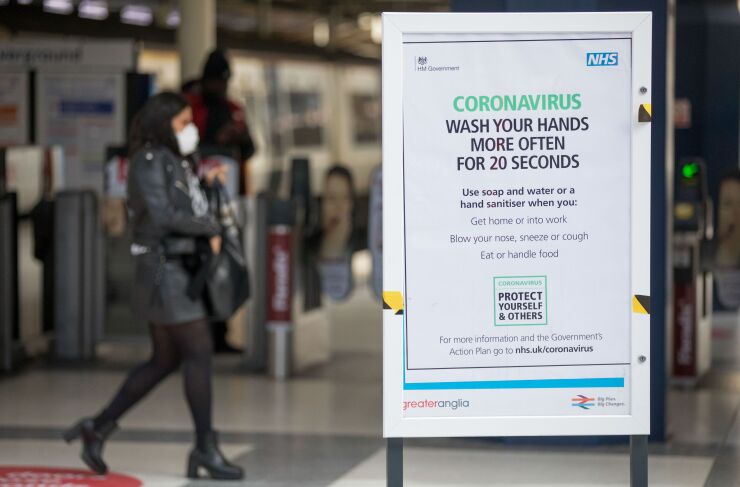The coronavirus pandemic is likely to force a great leap forward in the fight to crush paper checks, which still account for about half of B2B payments, by moving more invoice payments online.
Certain organizations also are voluntarily abandoning contractual payment terms and using electronic channels to pay bills immediately so businesses deprived of cash from the crisis may get paid faster.

Nordea Bank, which has a large footprint in the Nordic region with 1,400 branches in 20 countries including Finland, Norway and Denmark, vows to pay all outbound invoices as soon as they’re received, instead of waiting until bills are due.
The move will cut payment time by an average of 20 days for most companies expecting payment from Nordea, which is committing to the new terms for the next six months, Nordea said in a Monday press release.
Many other small- and midsize businesses that have dragged their heels in adopting electronic invoicing systems now seem willing to consider these options because they’re unable to physically process paper-based invoice and payment systems.
Plastiq, a San Francisco-based payments solution enabling businesses to pay or accept credit card payments for virtually any expense, has seen an uptick in activations since coronavirus struck.
The biggest growth has come from retailers, whose activations rose 29% through March, followed by e-commerce companies, up 14% and food and beverage providers, which drove a 5% increase in Plastiq activations.
The pressure to speed up the arrival of accounts-receivable funds is intensified by the fact that many of Plastiq’s customers said they’re unable to immediately tap cash from their traditional lenders, a Plastiq spokesperson said.
Another example is Sidetrade, a 250-person Paris-based software firm with offices in six countries, which learned that some of its own incoming payments were held up because its offices had suddenly closed.
Sidetrade—which provides accounts receivable software to large, multinational corporations—realized some of its own small-business customers’ and suppliers’ invoices and payments were held up by paper-based systems.
“We aren’t used to working remotely and when we looked at who owed us money we realized we needed to reset our own systems,” said Rob Harvey, Sidetrade’s global director of solutions.
Sidetrade made adjustments to use its own services to send out and track outstanding payments due, and in the process decided to pitch its service to small- and midsize businesses for the first time, Harvey said.
Interest from smaller firms is slow, but building, he said.
As long as a business has a spreadsheet list of businesses with email contacts for payors and the amount owed, Sidetrade’s CashControl service enables rapid onboarding for sending out and collecting payment in full or via installments. Sidetrade is making the service available to businesses free through June 30, Harvey said.
“Many small businesses are using a combination of electronic and paper-based billing and invoices, but in the pandemic there’s suddenly no option to go to the office to physically open envelopes to get checks and invoices and coronavirus may be what finally changes that behavior,” Harvey said.





